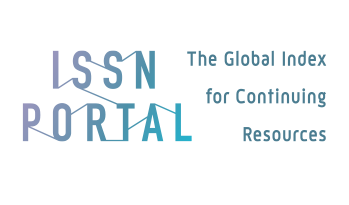HUBUNGAN INISIASI MENYUSUI DINI DENGAN KEBERHASILAN PEMBERIAN ASI EKSLUSIF PADA MASA NEONATUS DI UPTD PUSKESMAS KUALA SEMPANG
DOI:
https://doi.org/10.37776/zkeb.v11i1.698Abstract
Early initiation of breastfeeding is very important because it is one of the supporters for the success of exclusive breastfeeding in neonates. WHO recommends exclusive breastfeeding for the first 6 months of life and continued with complementary foods until the age of 2 years. A total of 136.7 million newborns worldwide and only 32.6% of them are exclusively breastfed in the first 6 months, while in developing countries only 39% of mothers are exclusively breastfed. The success of exclusive breastfeeding begins with the optimal implementation of the IMD process. The purpose of this study was to determine whether there was a relationship between Early Initiation of Breastfeeding and the success of exclusive breastfeeding during the neonatal period in the UPTD area of the Kuala Sempang Health Center. This study used a quantitative descriptive design and was conducted at the UPTD Puskesmas Kuala Sempang. The population of this study is mothers who have babies aged 7-12 months with a sample of 70 respondents. Based on the results of this study, it is known that there are 57 respondents (81.4%) who carry out Early Breastfeeding Initiation from 70 respondents, while 29 respondents (41.4%). The results of statistical tests to see the relationship between the two variables using the chi square test obtained a p value of 0.035. This shows that the conclusion of this study is that there is a relationship between early breastfeeding initiation and the success of exclusive breastfeeding in the Uptd area of Kuala Sempang Health Center. Suggestions to be able to carry out Early Initiation of Breastfeeding well and to be able to provide exclusive breastfeeding.Downloads
References
Afifah, D. N. (2007). Faktor Yang Berperan Dalam Kegagalan Praktik Pemberian ASI Ekslusif. UNDIP
Agustina R. (2015). Hubungan Inisiasi Menyusui Dini (IMD) terhadap Keberhasilan ASI Ekslusif di Posyandu Cempaka Putih Kelurahan Ciputat Timur. Fakultas Kedokteran dan Ilmu Kesehatan UIN Syarif Hidayatullah Jakarta
Aulia M. (2015). Hubungan IMD dengan Pemberian ASI Ekslusif pada Bayi Usia 6-12 Bulan di Puskesmas Mlati II Sleman Yogyakarta. Sekolah Tinggi Ilmu Kesehatan ‘Aisyiyah Yogyakarta.
Aprillia, Y. (2010). Hipnostetri: rileks, nyaman dan aman saat hamil & melahirkan. Jakarta: Gagas Media
Budiasih, K.S. (2008). Handbook Ibu Menyusui. Bandung: Hayati Qualiti.
Kemenkes. (2014). Profil Kesehatan Indonesia tahun 2013. Jakarta Kementrian Kesehatan RI
Manuaba, I.G.G. (1998). Ilmu Kebidanan, Penyakit Kandungan dan Keluarga Berencana untuk Pendidikan Bidan. Jakarta: EGC.
Martini. (2012). Hubungan Inisiasi Menyusu Dini dengan Tinggi Fundus Uteri Ibu Postpartum Hari ke – tujuh di Wilayah Kerja Puskesmas Kotabumi II Lampung Utara. Tesis Mangister Ilmu Kesehatan Masyarakat Universitas Indonesia.
Notoatmodjo, S. (2010). Promosi Kesehatan Teori dan Aplikasi. Jakarta: Rineka Cipta, (2012). Metodologi Penelitian Kesehatan. Jakarta: Rineka Cipta
Nursalam. (2008). Konsep dan Penerapan Metodelogi Penelitian Ilmu Keperawatan. Jakarta: Salemba Medika.
Priscilla V, Elmatris. (2011). Hubungan Pelaksanaan Menyusui Dini Dengan Pemberian ASI Ekslusif di Wilayah Kerja Puskesmas Tanah Garam Kota Solok Fakultas Kesehatan Masyarakat Andalas PadangSumatra Barat.
Queensland Maternity and Neonatal Clinical Guidelines Program. (2010). Breastfeeding Initiations. MN10.19-V2-R15.
Ramadhan R. (2017). Hubungan Tingkat Pengetahuan tentang Manajemen Laktasi dengan Keberhasilan Pemberian ASI Ekslusif di Kecamatan Kemangkon Kabupaten Purbalingga. Fakultas Ilmu Kesehatan UMP.
Roesli, U. (2009). Mengenal ASI Ekslusif. Seri 1. Jakarta: Pustaka Swara.
Roesli, U. (2012). Panduan Inisiasi Menyusu Dini plus ASI Ekslusif. Jakarta: Pustaka Bunda.
Survei Demografi dan Kesehatan Indonesia (SDKI). (2012). Badan Kependudukan dan Keluarga Berencana Nasional Badan Pusat Statistik Kementrian Kesehatan RI. (https://www.google.com/url?sa=t&source=web&rct=j&url=
http://kesga.kemkes.go.id/images/pedoman/SDKI%25202012Indonesia.pdfved=2ahUKEwjRrdwlcznAhVrxzgGHRr0A1oQFJACegQIAhAB&usg=AOvVaw2rqHPdylskuhc5GFXIT4ty&cshid=1581516371241). Di Kutip pada Tanggal 27 Januari 2020 pukul 11.04 WIB.
UNICEF. (2010). The UNICEF UK Baby Friendly Initiative Orientation to Breastfeeding For General Practitioners. Orientation Handbook.
UNICEF. (2014). Breastfeeding. (http://www.unicef.org/nutrition/index_24824.html) di Kutip pada Tanggal 1 Februari 2020 Pukul 10.08 WIB.
Wanithri. (2012). Hubungan Inisiasi Menyusui Dini dengan Keberhasilan Pemberian ASI Ekslusif pada Neonatus di Rumah Sakit Umum Sanjiwani Gianyar dan Praktek Bidan Mandiri. Politeknik Kesehatan Denpasar
Yuliarti, N. (2010). Keajaiban ASI-Makanan Terbaik untuk Kesehatan, Kecerdasan, dan Kelincahan si Kecil. Ed.I. Yogyakarta: ANDI.
















